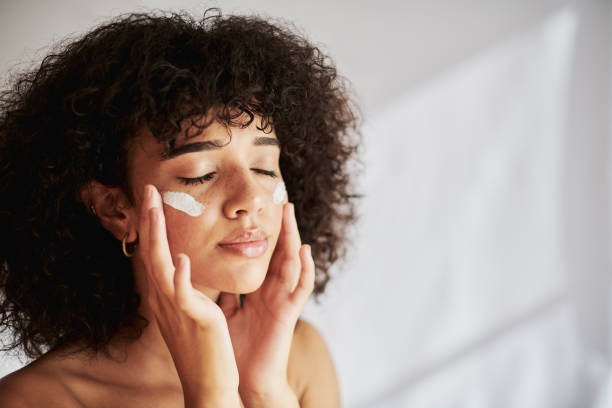The Ultimate Guide to Face Masks: Types, Benefits, and How to Choose
Face masks have become an essential part of many skincare routines, offering a wide range of benefits for various skin concerns. Whether you're looking to hydrate, cleanse, or rejuvenate your skin, there's likely a face mask that can help. This comprehensive guide will explore the world of face masks, their types, benefits, and how to choose the right one for your skin.

What exactly is a face mask in skincare?
A face mask is a skincare product designed to deliver concentrated ingredients to the skin in a short period. Unlike daily cleansers or moisturizers, masks are typically left on the skin for a set amount of time before being removed or washed off. They come in various forms, including clay, sheet, gel, cream, and peel-off varieties. Each type of mask serves a specific purpose, from deep cleansing to intense hydration, and can be tailored to address particular skin concerns.
What are the main types of face masks available?
-
Clay Masks: Ideal for oily or acne-prone skin, clay masks help absorb excess oil and unclog pores.
-
Sheet Masks: These single-use masks are soaked in serum and provide intense hydration and nourishment.
-
Gel Masks: Lightweight and often cooling, gel masks are great for hydrating and soothing sensitive or irritated skin.
-
Cream Masks: These rich, emollient masks are perfect for dry or mature skin, offering deep hydration and nourishment.
-
Peel-Off Masks: These masks dry on the skin and are peeled off, helping to remove dead skin cells and impurities.
-
Overnight Masks: Designed to be worn while sleeping, these masks provide intense hydration and repair throughout the night.
What benefits can face masks offer for skin health?
Face masks can offer a wide range of benefits, depending on their ingredients and formulation:
-
Deep Cleansing: Clay and charcoal masks can help remove impurities and excess oil from the skin.
-
Hydration: Sheet masks and cream masks can provide intense moisture to dry or dehydrated skin.
-
Exfoliation: Some masks contain gentle exfoliants to remove dead skin cells and improve skin texture.
-
Brightening: Masks with ingredients like vitamin C or niacinamide can help even out skin tone and boost radiance.
-
Anti-Aging: Masks with retinol, peptides, or antioxidants can help reduce the appearance of fine lines and wrinkles.
-
Calming: Soothing ingredients like aloe vera or chamomile can help reduce redness and inflammation.
How often should you use a face mask?
The frequency of face mask use depends on your skin type and the specific mask you’re using. As a general rule:
-
Clay masks: 1-2 times per week for oily or acne-prone skin.
-
Sheet masks: 1-3 times per week, or daily for intense hydration.
-
Hydrating masks: 2-3 times per week for dry or dehydrated skin.
-
Exfoliating masks: Once a week to avoid over-exfoliation.
-
Overnight masks: 2-3 times per week or as needed for extra hydration.
It’s important to listen to your skin and adjust the frequency based on how your skin responds. Over-masking can lead to irritation or sensitivity, so it’s best to start slowly and increase frequency as needed.
What are some unique face mask tips for optimal results?
To get the most out of your face mask experience, consider these tips:
-
Double masking: Apply a clay mask to your T-zone and a hydrating mask to your cheeks for targeted treatment.
-
Multi-masking: Use different masks on different areas of your face to address multiple concerns simultaneously.
-
Prep your skin: Cleanse and exfoliate before applying a mask to enhance ingredient absorption.
-
Use tools: Apply your mask with a brush for even application and less product waste.
-
Enhance absorption: Use a jade roller or gua sha tool over a sheet mask to boost product penetration.
-
Don’t forget your neck: Extend your mask application to your neck for comprehensive skincare.
How do you choose the right face mask for your skin type?
Selecting the right face mask depends on your skin type and concerns:
-
Oily/Acne-Prone Skin: Look for clay or charcoal masks with salicylic acid or tea tree oil.
-
Dry Skin: Choose hydrating masks with ingredients like hyaluronic acid, glycerin, or ceramides.
-
Sensitive Skin: Opt for gentle, fragrance-free masks with soothing ingredients like aloe vera or chamomile.
-
Combination Skin: Consider multi-masking or alternating between different mask types.
-
Mature Skin: Look for masks with anti-aging ingredients like retinol, peptides, or antioxidants.
-
Dull Skin: Choose brightening masks with vitamin C, niacinamide, or fruit enzymes.
| Skin Type | Recommended Mask Type | Key Ingredients to Look For |
|---|---|---|
| Oily/Acne-Prone | Clay or Charcoal | Salicylic Acid, Tea Tree Oil |
| Dry | Cream or Hydrating | Hyaluronic Acid, Glycerin |
| Sensitive | Gel or Soothing | Aloe Vera, Chamomile |
| Combination | Multi-Mask or Alternating | Varies based on specific concerns |
| Mature | Anti-Aging | Retinol, Peptides, Antioxidants |
| Dull | Brightening | Vitamin C, Niacinamide |
Prices, rates, or cost estimates mentioned in this article are based on the latest available information but may change over time. Independent research is advised before making financial decisions.
In conclusion, face masks are a versatile and effective addition to any skincare routine. By understanding the different types of masks available and how they benefit various skin concerns, you can choose the right mask to address your specific needs. Remember to be consistent with your mask usage and pay attention to how your skin responds to achieve the best results.
This article is for informational purposes only and should not be considered medical advice. Please consult a qualified healthcare professional for personalized guidance and treatment.




